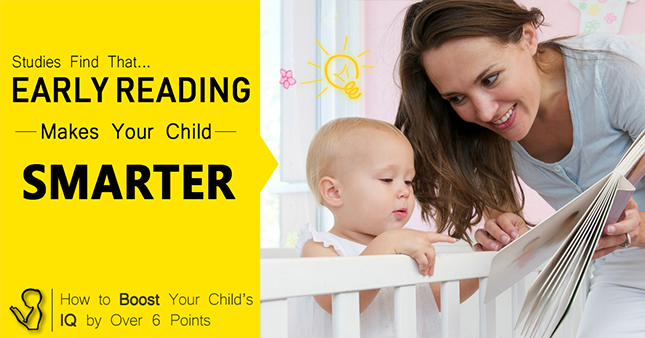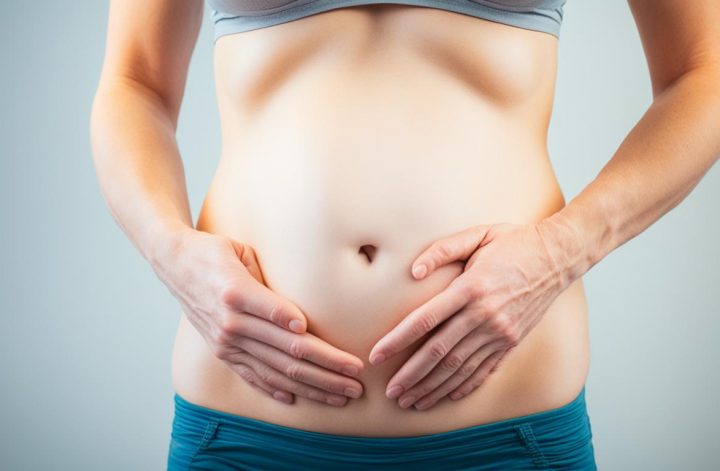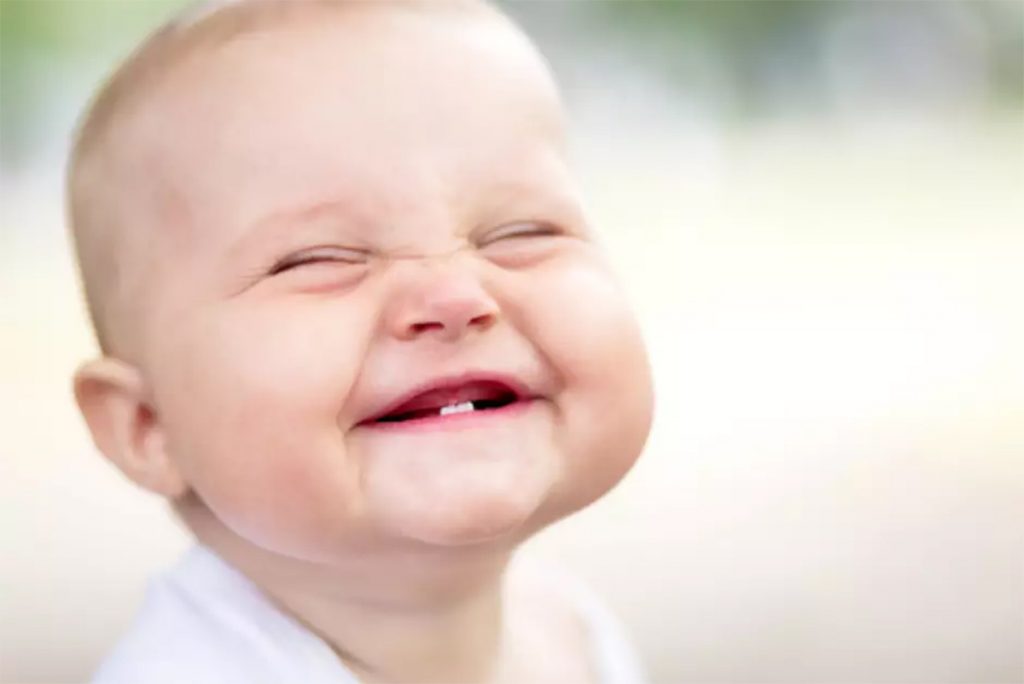
There was a time when it was considered unnecessary to sanitize the mouths of children while the teeth of little ones were not complete. Today, professionals understand that teeth should be cleaned as soon as they begin to emerge. And for the baby to become familiar with a habit that will take him a lifetime, the ideal is to start brushing his teeth early.
The first challenge to start oral hygiene in babies is the fear of the mothers and fathers themselves. Adults are afraid of hurting their children’s mouths. Therefore, for the beginning of this process, there must be the preparation of the parents, who need to be trained to do the correct cleaning. Once they get used to it, it becomes a routine for the child and the mother.
And so, brushing one’s teeth has to enter the list of obligations to be fulfilled in the baby’s daily routine. In other words, besides changing the diaper, bathing and breastfeeding, sanitizing the mouth is on the list of essential activities that cannot be forgotten by the parents. We are talking about a process that takes time. The baby gets used to the mother passing the gauze, then the brushes when he already has the molars and as time goes by, the child already considers brushing a natural activity. It would be very different, for example, to start brushing your teeth when you are 3 years old.
Tactics
One way to encourage the child to brush is to give it autonomy to do the cleaning, as long as it is then guided by its parents. However, experts believe that the child will only have perfect motor coordination to brush alone at age 5. The aptitude varies according to each one, but it is always recommended to have parental supervision.
Another way out is to invest in colorful brushes, with characters and any other trick that catches the children’s attention. The tip is to brush the child’s teeth with his back to you, with the head resting on his abdomen. This way it is easier to have control and prevent them from deviating from brushing.
Tips
- Brushes the teeth from the eruption of the first teeth, between six and 12 months.
- Start flossing from the age of three, when the child already has the molars.
- First the child must brush in his own way, so that he can learn to handle his own mouth. Then do the proper brushing.
- Guide the people who are part of the child’s routine about the importance of brushing at least three times a day.
- Get a toothbrush that is compatible with the child’s age, regardless of the brand, because the proper size of the head will facilitate brushing.
- The toothpaste indicated for children is with 1000 ppm to 1100 ppm of fluoride. The amount to be used for children up to three years old is similar to a grain of rice. From that age on, move to a pea grain.
- Teach the child to clean his tongue with his own brush.
- Always encourage the child to spit the paste out.
- Set an example. The little ones need to watch their parents and older siblings brush their teeth, since imitation motivates children.
Brushing baby’s teeth: when to start and how to do it
One of the main questions is when to start brushing your baby’s teeth, and how to do it. It may seem impossible with the restlessness of children, but it is perfectly possible to establish a routine for healthy brushing.
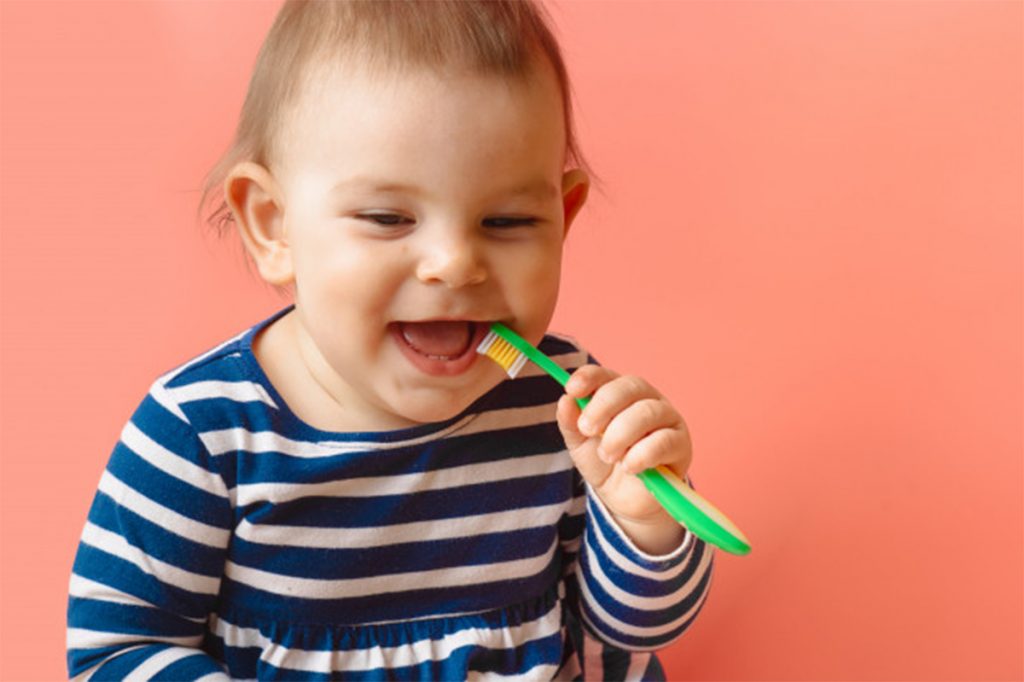
When is it time to start brushing your baby’s teeth?
Oral hygiene should be started before the birth of the first tooth, which usually occurs from 6 months of baby’s life. At this time, the ideal is to clean the mouth with a cloth or gauze soaked in water. Although your baby won’t immediately understand why you’re brushing, babies love routines and will begin to accept dental care as part of their daily routine. Once you see a tooth being born, add “brushing your teeth” to the morning and evening rituals, mainly because it helps massage the gums and even relieves a little of the discomfort of the first teeth being born.
Some practical tips for brushing your baby’s teeth:
– Let your baby see you brush your teeth for as long as you can. Babies love to imitate, so being familiar with their habit will make it easier to incorporate brushing into their routine.
– After the first teeth are born (the lower and upper central incisors, which are those very central teeth in the upper and lower arches), replace the gauze with a baby-specific toothbrush. There are many brands and models available, and the vast majority of them are of quality. If you use the best known brands, such as Oral B, Johnson’s, Colgate, Bitufo, you are probably buying a reliable product for your baby.
– As soon as the tooth erupts in the mouth it is the most propitious time for the caries injury to establish itself. At this time, intensify your attention with oral hygiene.
✅ See also:
👉 How to teach your baby to eat healthily
👉 How to Teach Your Child to Handle Money From an Early Age
What toothpaste should I use to brush my baby’s teeth?
For a long time, the recommendation was to guide mothers and fathers to brush their baby’s teeth without toothpaste, or with a fluoride-free toothpaste. This is because ingestion of fluoride can cause a problem known as dental fluorosis, in which the enamel (the outermost, whiter, hardest and most impermeable layer of the tooth) of the teeth that are forming inside the bone is compromised. After this tooth erupts, it is observed that the malformed enamel is stained, and even more subject to wear.
In a small baby, the enamel of the teeth is already mostly formed inside the bone, just waiting for the moment of the eruption. But permanent teeth are forming in full swing, so if the baby ingests significant amounts of fluoride daily, there is a chance that fluorosis will develop.
On the other hand, recent studies have shown that brushing the baby’s teeth using fluoride toothpaste (which has a lower concentration than conventional toothpaste) in the correct amount can significantly reduce the risk of caries. Therefore, the current recommendation is to use fluoride toothpaste, but in a minimal amount (because the baby does not know how to spit, and ends up swallowing a small part).
The right amount of toothpaste to be used to brush the baby’s teeth is less than a grain of rice. It’s as if you just “lightly” put the paste on the end of the bristles, just enough to notice that there’s some product left there. This is especially important after the molars erupt, those little teeth that are at the bottom of the mouth and have several tips and grooves. Until then the brushing without paste takes care of it.
But it is always worth remembering that the ideal is to make a dental appointment when your child is still a baby, because the recommendations can be modified in special cases. There are children, for example, who are allergic to fluoride (it is rare, but it is possible), and in this case they should use toothpaste without the component.
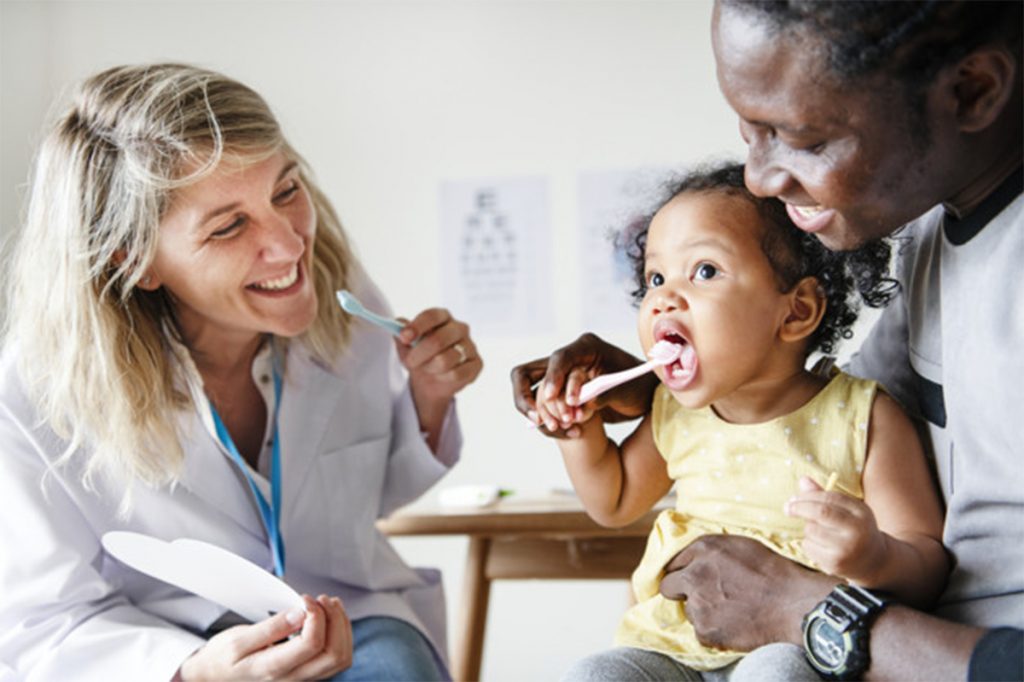
Can babies use mouthwash?
For the same reason (risk of fluorosis), do not use mouthwash on your child until you realize that he is already able to spit everything out (from 6 years onwards, at least!). In the case of mouthwash, the amount placed in the mouth is large, so the risk of fluorosis is substantially increased. And if you are already using fluoride toothpaste, there is no need for the rinse.
Do you need to brush your baby’s tooth during the night after feeding?
At least wipe your baby’s mouth with a watery cloth after he feeds at dawn. But if you give your baby the bottle just to put him back to sleep, you won’t wake him up with the gauze or wet cloth in his mouth. So be careful with hygiene during the day (this means brushing your baby’s teeth at least 3 times a day, taking 2-3 minutes – or more if he’s not very cooperative). If you do everything right during the day with regard to hygiene and controlling what the baby eats, it’s not the early morning feed that will lead to the development of caries.
Do antibiotics cause caries in the baby or the child?
Antibiotics do not cause caries. The problem is that most syrups are sweet, to facilitate acceptance by the baby/child. If your child makes frequent use of syrups, pay close attention to brushing. It is the sugar that is left there that “feeds” the bacteria that cause caries.
Encouraging the little ones to brush their teeth
Brushing your teeth may not be the most exciting task in children’s routine, so it is difficult to encourage them to maintain good oral hygiene. But parents should be insistent and look for ways to convince their children that brushing can be a fun and enjoyable time.
There are some strategies to make this moment special: The mother can sing, play, count four times in each little group of teeth – in the back, in the front, in the bottom. This makes the child see brushing as a fun game and feel more like participating.
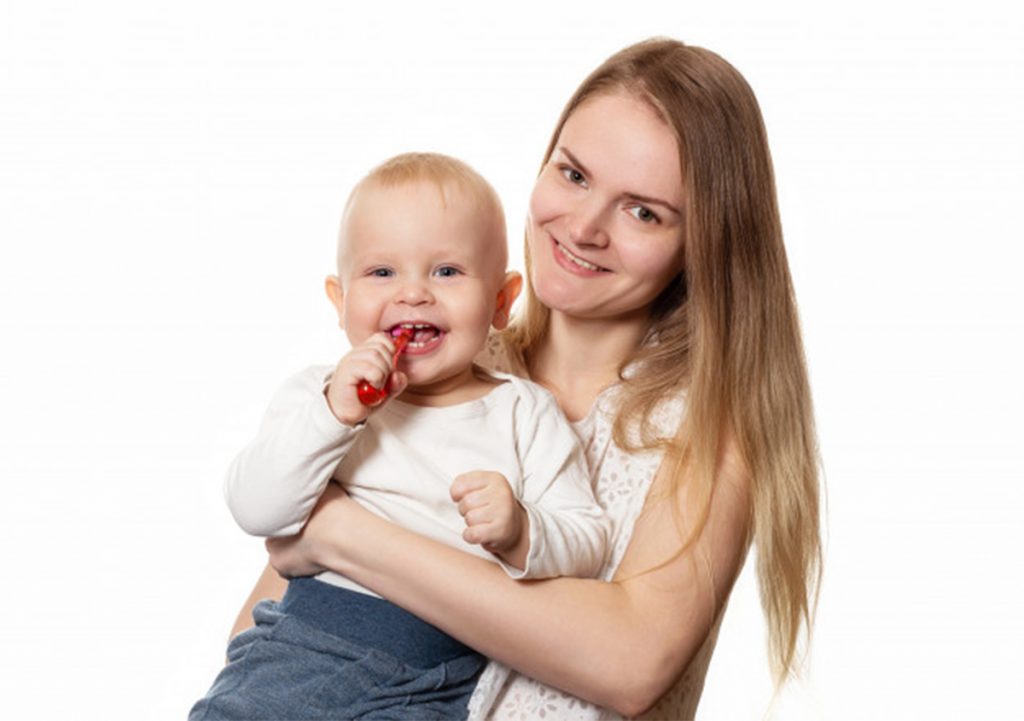
Another tip is that the little one has two brushes, one for training and the other for the mother to do an effective brushing. This is because smaller children usually bite the brush and, with two of them, it is not necessary to buy brushes all the time.
Also, explain to your child at an early age how important it is to go to the dentist. Most professionals recommend that children start visiting the dentist’s office at the age of two, but many parents ignore this recommendation, only taking the child when there is already some problem – such as caries.
But a dentist can help with oral hygiene care, talk about the importance of fluoride, explain how food influences dentition and encourage your child to take care of his teeth. If he’s used to the dentist, he’ll be more comfortable when he needs actual treatment.
With patience and dedication, you can make children enjoy brushing their teeth – and make sure your child always has a beautiful, healthy smile!
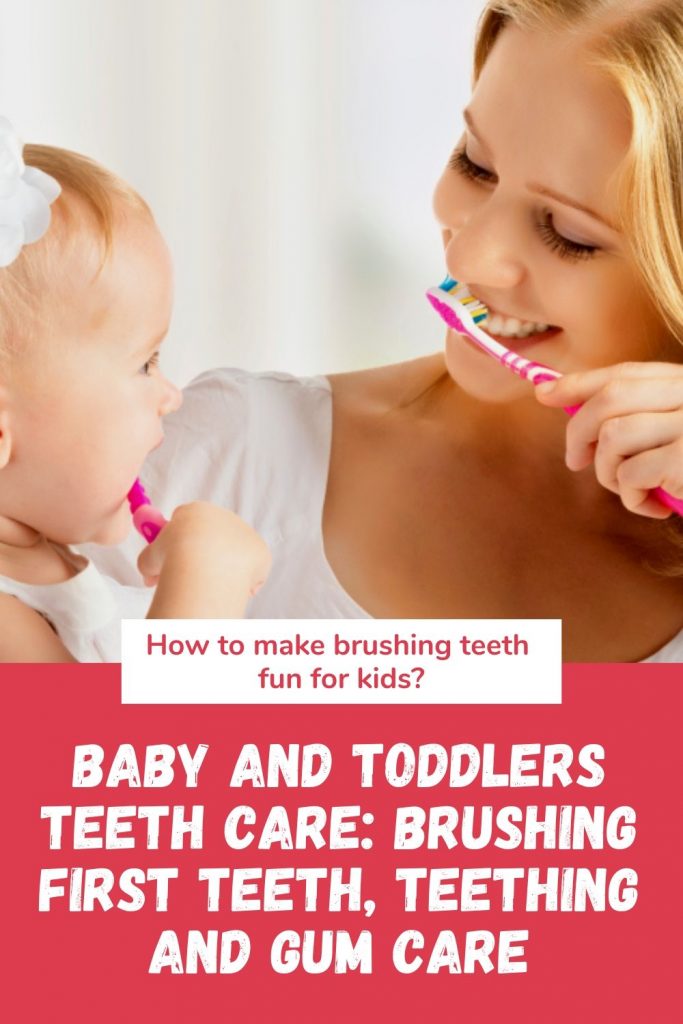
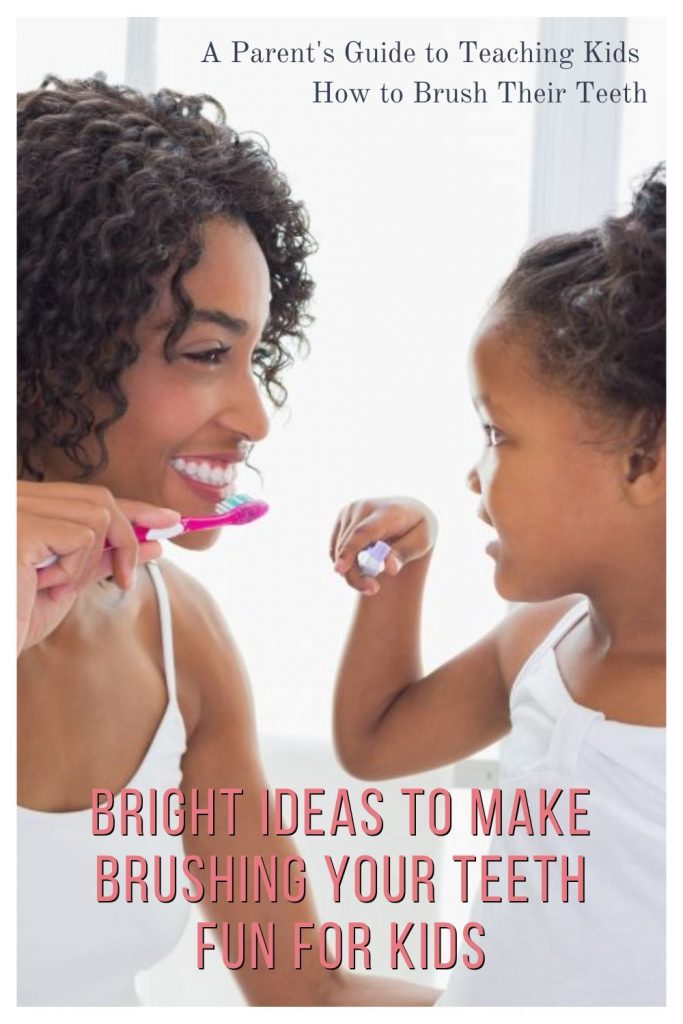
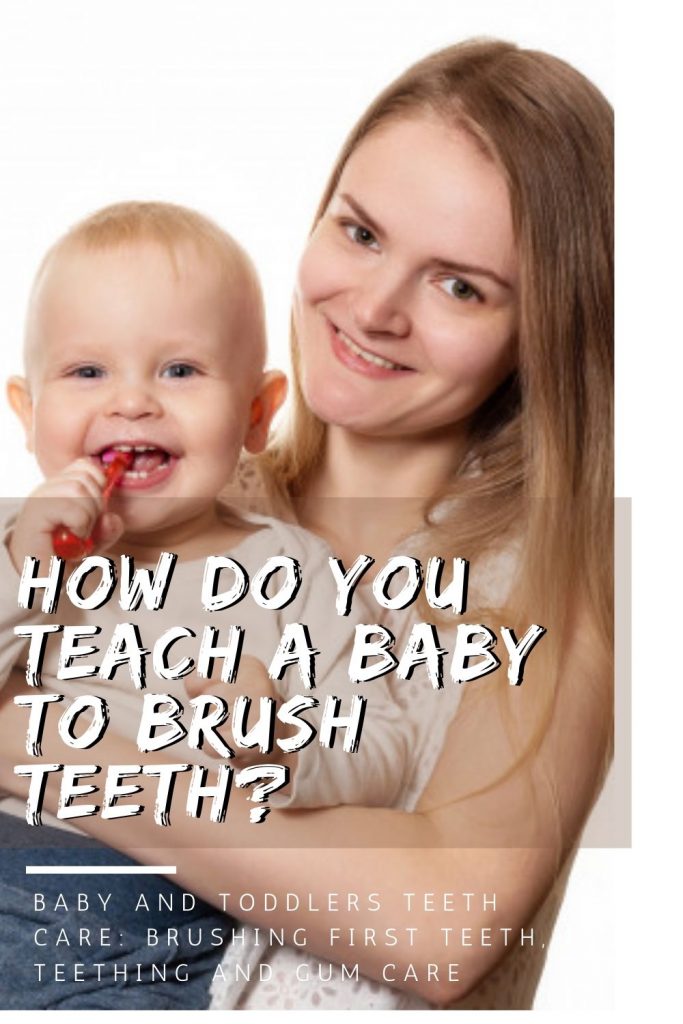
Related tags: how to brush a baby’s teeth,how to brush baby teeth,brushing baby teeth,how to get a toddler to brush his teeth,how to brush a child’s teeth,how to brush a baby’s teeth without a fight,how to brush a toddler’s teeth,how to make a toddler brush teeth, how to brush a toddler’s teeth,how to brush toddlers teeth,how to brush your toddler’s teeth,how to brush your toddler teeth,how to brush my toddler’s teeth,how to brush my toddlers teeth,how to brush a toddlers teeth
Disclaimer: This post may have affiliate links.


